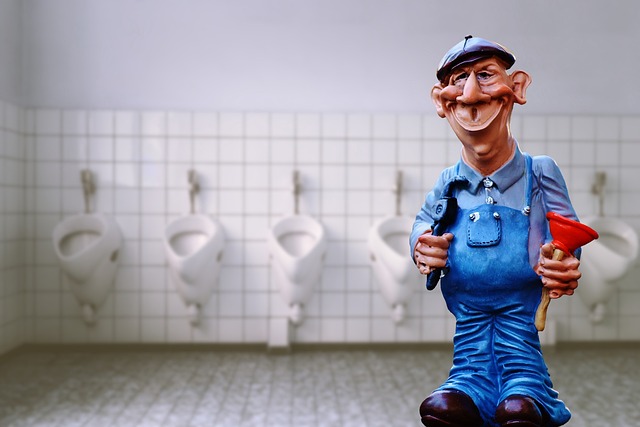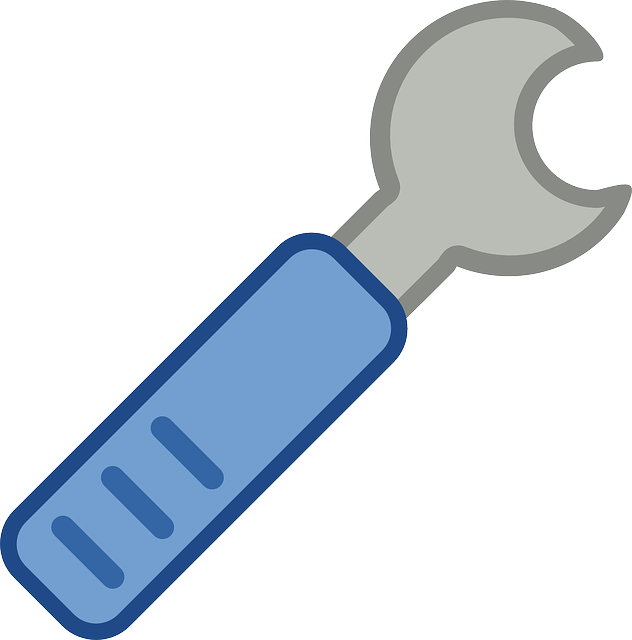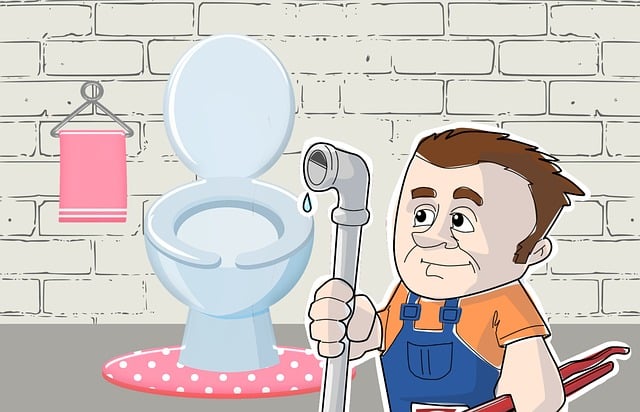Homeowners can often tackle simple plumbing issues like clogs with DIY tools like plungers, but complex problems like leaks or repiping need professional plumbers' specialized knowledge and equipment for long-lasting solutions, preventing further damage. The choice between DIY and professional plumbing depends on task complexity; while DIY is suitable for minor inconveniences, intricate problems require a plumber's expertise.
In the realm of plumbing, knowing when to tackle issues yourself or when to call a professional is crucial. This article guides you through the DIY plumbing landscape, empowering folks with essential tools and tasks they can handle. We also outline clear signs that indicate when your problem requires the expertise of a plumber. Additionally, our comprehensive guide helps you choose between a plunger and pipe wrench for effective problem-solving. Embrace the balance between DIY vs. professional plumbing to keep your pipes in top shape.
- Understanding DIY Plumbing: Tools and Tasks You Can Handle
- When to Call the Plumber: Signs Your Problem Requires Professional Expertise
- Choosing Between a Plunger and Pipe Wrench: A Comprehensive Guide
Understanding DIY Plumbing: Tools and Tasks You Can Handle

Many homeowners opt for DIY plumbing tasks, a trend that’s surged with the accessibility of online tutorials and an abundance of tools available in hardware stores. For minor issues like clearing a simple clog or replacing a showerhead, a DIY approach can be satisfying and cost-effective. Basic tools like plungers and pipe wrenches are essential for such tasks. A plunger is your go-to tool for unclogging drains, while a pipe wrench provides the leverage needed to tighten or loosen fittings.
However, not all plumbing issues are suitable for DIY repairs. Complex problems that involve intricate pipes, mysterious leaks, or unusual noises warrant professional attention. Professional plumbers have the expertise and tools for more advanced tasks like repiping, repairing broken pipes, or installing new water heaters. They can also pinpoint issues in hidden sections of your plumbing system, ensuring long-lasting solutions compared to temporary fixes from DIY attempts.
When to Call the Plumber: Signs Your Problem Requires Professional Expertise

While many homeowners opt for a DIY approach to minor plumbing issues, there comes a time when a simple plunger or pipe wrench is not enough. Recognizing when to call in a professional plumber is crucial for effective and lasting solutions. Signs that your plumbing problem requires professional expertise include persistent leaks, severe clogs that standard tools can’t address, and any evidence of water damage or structural issues.
Plumbers bring specialized knowledge and tools tailored to complex repairs and installations. They can identify hidden problems, offer long-term solutions, and ensure the safety and efficiency of your plumbing system. Comparing DIY solutions with professional plumbing services reveals that while DIY can save costs for simple tasks, it may lead to further damage or complications if not handled correctly by a trained expert.
Choosing Between a Plunger and Pipe Wrench: A Comprehensive Guide

When faced with a plumbing issue, homeowners often grapple with the question: DIY or call a professional? This dilemma is especially true when it comes to unclogging drains or tightening loose pipes. A plunger and pipe wrench are common tools in many households, each serving distinct purposes. Understanding when to use either tool is crucial for effective DIY plumbing attempts or knowing when to hand over the task to a professional.
For minor clogs that haven’t persisted, a plunger can be your go-to solution. Its suction power effectively breaks up and dislodges hair, grease, or other common blockages. Conversely, a pipe wrench is indispensable for tasks requiring precise tightening of pipes or fittings. Leaking faucets or loose connections often call for this tool’s precision, ensuring a secure seal to prevent future leaks. The choice between DIY and professional plumbing depends on the complexity of the issue; minor inconveniences can be addressed by homeowners, but more intricate problems demand the expertise of a plumber.
When it comes to DIY vs. professional plumbing, knowing when to tackle issues yourself and when to call in a plumber is key. With the right tools, like a plunger for minor clogs or a pipe wrench for tighter fittings, many homeowners can handle basic tasks. However, signs like persistent clogs, severe leaks, or mysterious water damage often require the expertise of a trained plumber. Understanding these differences empowers you to make informed decisions, ensuring your plumbing problems are resolved efficiently and effectively.
